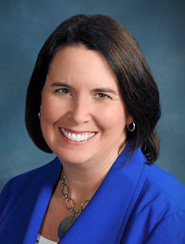
SB 1062 by Sen. Kelli Stargel, R-Lakeland, cleared the Education Pre-K-12 Committee on a 9-1 vote on Tuesday. It would make it easier for students to receive John M. McKay Scholarships for Students with Disabilities, a popular voucher program.
Right now, with few exceptions, students with special needs are required to have enrolled in public schools or received specialized services under the state’s Voluntary Prekindergarten program before they can apply for the scholarships, which serve more than 30,000 students this school year.
The lone committee member voting against the plan was Sen. Dwight Bullard, D-Miami, who noted parents can apply for Gardiner Scholarships, the state’s newer education savings account program for special needs students, without first attending public schools. (Step Up For Students, which publishes this blog, helps administer the Gardiner program.)
Bullard said the requirement that students attend public schools before qualifying for McKay Scholarships was intended, in part, to ensure parents “understood the width and breadth of the programs at the public-school level that were available.”
Stargel said Gardiner scholarships (formerly known as Personal Learning Scholarship Accounts) give parents a wider range of options, since they can be used for things like home school curriculum or educational therapy, in addition to private-school tuition. But they also have tighter eligibility rules. Some students, like those with learning disabilities, might only qualify for McKay scholarships.
“It allows parents to choose the environment that best suits their child,” Stargel said of her bill, adding: “I think they should have the option from the get-go.”
An analysis of the bill by legislative staff noted it “will likely result in increased participation in the McKay scholarship program.” It makes a similar forecast for virtual education, which would also have enrollment restrictions lifted under the bill.
There’s no bill in the House that directly mirror’s Stargel’s proposal, but other bills advancing this legislative session would eliminate prior-year public-school attendance requirements for specific groups of students who apply for McKay scholarships, such as children in foster care, and have drawn praise from school choice advocates.



Good Morning, Mr. Travis Pillow,
This is great news about the Gardiner Program, eliminating the one year in Public
Schools before applying to Private Schools. Will this also be attached to the Step Up For Students Scholarship or a different Scholarship Program. When will this be effective, I am hoping for the new School year.
Thank all the Parents for marching
Hi Ms. Reynolds, Thank you for the comment. The bill in question would expand eligibility for the McKay scholarships to include students who hadn’t already attended public schools. This would basically put it on par with the Gardiner and tax credit programs.
This is excellent news! I have 4 children, 2 Autistic. Since the FLDOE normally enters and gives the children the Matrix code, how will children entering Pre-K or children who have never been in the Public School system be “rated?”
Hi Sheri, you raise an interesting question to which I do not know the answer. It seems to raise an important issue: Who will determine matrix levels (or perform IEP evaluations, for example) in an environment where more students are using public funds to access private providers outside the school district?
I definitely would like to find out how this will be determined. I can tell you that I am very excited that the bill was passed. Having to enroll my daughter in the public school system, where communication and accesibility to administration, is almost non-existent, would have been extremely stressful for me. My previous experience with Public School was not a pleasant one.
I have looked at both the McKay and the PLSA. My daughter will be 5 on Sept 5 of this year. McKay covers K – 12. With the PLSA, there is a statement in the parent handbook thats says “Students who are 3 or 4 years old may not use PLSA funds for tuition and fees at an eligible private school.” What would be an option for her since she turns 5, five days after the “cut-off” date or is my only option to continue home-schooling through the following year.
Just found out that the PLSA scholarship will cover Pre-K now… 🙂
Best of luck, Sheri. This was one of the changes approved by lawmakers last year, and signed into permanent law by Gov. Rick Scott last month.